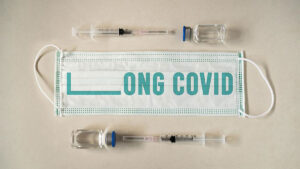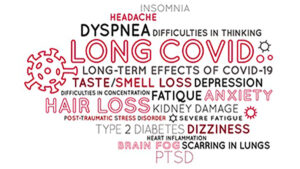Overall risk is low but real, data suggests.
Children may be at increased risk of stroke after COVID-19 infection, according to a new study published this week in the journal Pediatric Neurology.
“It may be that hyper-immune response that comes later that’s causing kids to clot,” said MaryGlen J. Vielleux, M.D., a pediatric neurology resident at University of Utah Health and lead author of the study. “Overall, kids have a relatively low risk for stroke, but there is a rare but real risk after COVID.”
Though previous research has shown that adults with COVID are at higher risk of stroke, that link has not previously been made with children. That may in part be because kids who do experience strokes generally have better medical outcomes than adults.
At the beginning of 2021, pediatric neurologists in Salt Lake City began to notice what appeared to be a growing number of stroke patients. These were kids who were seemingly healthy before experiencing a stroke.
They wondered whether this was a true increase and how it might compare to stroke numbers historically. They also wanted to know whether the apparent increase had any connection to the peak in COVID cases a few months before a rise in Multisystem Inflammatory Syndrome in Children (MIS-C).
“If we see one kid with a stroke a month, that would be pretty typical,” said Joshua L. Bonkowsky, M.D., Ph.D., and Chief of the Division of Pediatric Neurology at U of U Health and Intermountain Primary Children’s Hospital. “We were seeing three cases a week for multiple weeks in a row.”
By reviewing medical charts and diagnosis codes, researchers were able to identify 16 patients at the hospital who had an ischemic stroke between March 2020 and June 2021. Most of those took place between February and May 2021, shortly after the surge of COVID pediatric cases in the Mountain West region.
Of those tested for COVID antibodies, nearly half tested positive. None of the 16 had been severely sick with the virus and some had been asymptomatic. Five patients were not tested for past COVID infection, a limitation of the study.
“Overall, kids have a relatively low risk for stroke, but there is a rare but real risk after COVID.”
Pediatric stroke is very rare, so it is difficult to do a large study even at a major regional institution.
The new data did show that the overall number of strokes was significantly higher than what had been seen historically at Intermountain Primary Children’s Hospital. Over the past five years, the number of children with strokes of uncertain origins had averaged around 4 per year. In the first six months of 2021, the hospital cared for 13 kids with a stroke of unknown origins.
Primary Children’s Hospital serves children from multiple states in the Mountain West. Any child in the region who has a stroke receives treatment at the hospital. That gives clinicians a unique ability to get a comprehensive snapshot of certain medical conditions such as stroke.
The study’s results are in contrast to the findings of a 2021 international study of children early in the pandemic that suggested COVID did not cause an increased risk of stroke in children.
The new study also showed that the risk of stroke is independent of whether or not the patient has Multisystem Inflammatory Syndrome in Children (MIS-C), a known complication of COVID. Only three of the patients had confirmed cases of MIS-C.
Analysis shows a rise in pediatric stroke cases after a surge in cases of COVID-19 suggesting that COVID-19 increases stroke risk. Stroke was not associated with MIS-C.
Of the 16 kids studied, most had few lingering impacts from their stroke by the time they left the hospital
Researchers hope this new study highlights the need for early evaluation of neurologic symptoms in children to rule out the possibility of stroke. Children often do not display the symptoms commonly associated with stroke in adults.
Children may have weakness on one side of the body but can often have an altered mental state or difficulty walking.
The data show that even kids who were asymptomatic from COVID could go on to experience a serious complication like stroke, said Vielleux.
##
In addition to Vielleux and Bonkowsky, the study’s co-authors are Shanna Swartwood, M.D., Dan Nguyen, M.D., Karen E. James, M.D., from the Spencer Fox Eccles School of Medicine at the University of Utah and Bree Barbeau, M.P.H. from the Utah Department of Health. The research published as “SARS-CoV-2 Infection and Increased Risk for Pediatric Stroke.”




